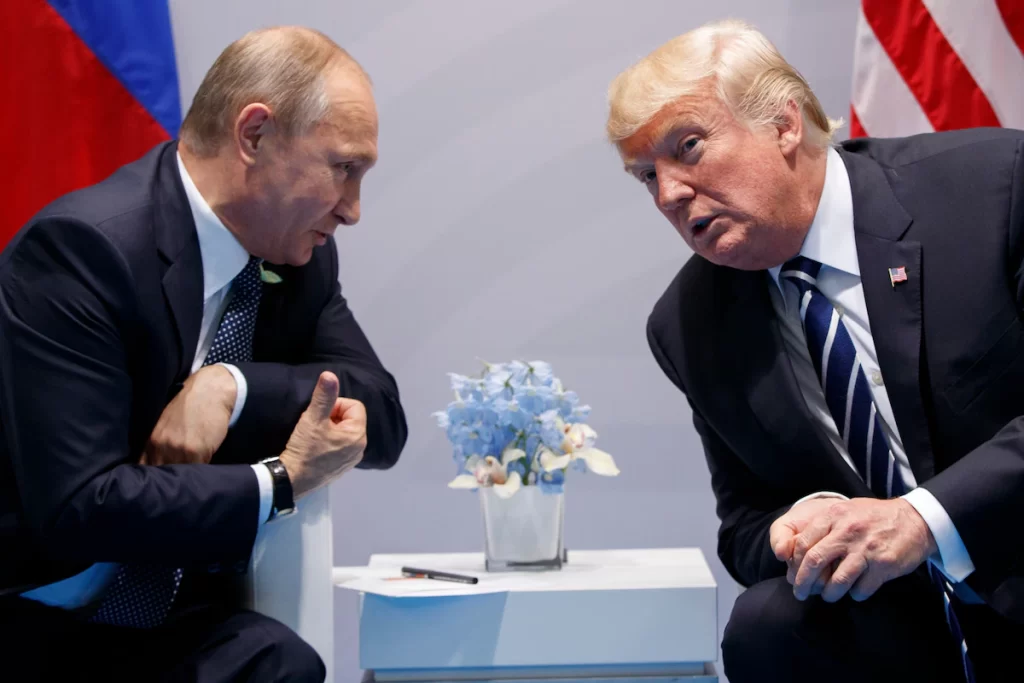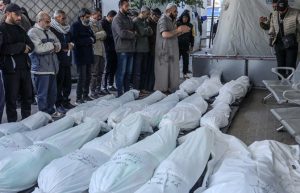
Russian President Vladimir Putin has extended congratulations to Donald Trump following his election victory, calling him a “courageous man” and praising his resilience throughout his first term in office. Speaking at a gathering in Sochi, Putin highlighted the challenges Trump faced during his presidency, describing him as “hounded from all sides” by political opponents and the media.
Putin’s comments come amid growing speculation over the future of U.S.-Russia relations under Trump’s second term, with the Russian leader expressing openness to potential discussions. He also took the opportunity to comment on Trump’s public statements regarding the ongoing war in Ukraine. Throughout his campaign, Trump had repeatedly stated that he could end the war “in a day,” although he never clarified how this would be achieved. Putin, while acknowledging that the claim was bold, said that Trump’s approach to the war “deserves attention.”
In addition to his political praise, Putin reflected on a more personal moment from Trump’s first term—the assassination attempt on the former president in July. Trump had been shot during a campaign rally, but in a display of defiance, he raised his fist and mouthed the words “fight, fight, fight” before being quickly escorted by Secret Service agents. Putin expressed admiration for Trump’s response, stating, “He behaved, in my opinion, in a very correct way, courageously, like a man.”
When asked about the possibility of future talks with Trump, Putin was clear: “We’re ready, we’re ready.” This echoed Trump’s own remarks earlier, when he told NBC News that he was open to speaking with the Russian president, saying simply, “I think we’ll speak.”
The congratulatory tone from Putin comes despite the fraught history between Trump’s campaign and Russia. The Kremlin was accused of interfering in the 2016 U.S. presidential election in an effort to support Trump’s campaign against Hillary Clinton—a charge Moscow has consistently denied. U.S. Special Counsel Robert Mueller conducted an investigation into possible collusion between Trump’s team and Russian officials, but in his final report, Mueller found no evidence of conspiracy.
The relationship between Trump and Putin remains a topic of ongoing debate. In Europe, some leaders are concerned about how Trump’s return to the White House might impact international alliances and the U.S.’s stance on the war in Ukraine. Ukrainian President Volodymyr Zelensky, who has been a vocal critic of Russian aggression, met with Trump during the European Political Community summit in Budapest. Zelensky described their conversation as “very warm” and “productive,” but emphasized the importance of ensuring that Ukraine’s relationship with the U.S. remains strong and continues to yield positive results for both nations.
Many in Ukraine and across Europe are apprehensive about Trump’s past comments, which suggested he might reduce or even halt U.S. military aid to Kyiv upon taking office again. As the U.S. has been a significant supplier of weapons and financial support for Ukraine in its fight against Russia, any slowdown in aid could have serious repercussions for the country’s defense efforts.
UK Prime Minister Sir Keir Starmer sought to reassure Zelensky during the summit, reaffirming that the UK’s support for Ukraine remains “iron-clad.” This message of continued solidarity was echoed by other European leaders, who are closely monitoring the shifting dynamics of U.S. foreign policy.
In Hungary, Prime Minister Viktor Orban, a known ally of Trump, also weighed in on the future of U.S.-European relations. Orban, who had previously celebrated Trump’s election victory by saying he “tapped into the vodka supply happily,” noted that trade issues would become a central focus of future discussions between the U.S. and Europe. Orban predicted that trade negotiations with the U.S. would not be easy and that Europe would need to address its future security and economic responsibilities.
During the campaign, Trump had proposed imposing tariffs of 10% on all imports, signaling a shift in U.S. trade policy that could potentially disrupt economic relations with Europe. Orban pointed out that there was an expectation that Europe should shoulder more of the responsibility for its peace and security in the future, adding, “We cannot expect Americans to be the only ones to take care of us.”
The political landscape surrounding Trump’s election win suggests that his second term could usher in significant shifts in both U.S. foreign policy and international trade dynamics. As Trump prepares for his return to the White House in January, global leaders are bracing for the impact his presidency will have on international alliances, particularly with regard to Russia and Ukraine. The coming months will likely see a series of delicate negotiations as the world adapts to the changes in U.S. leadership and policy direction.







